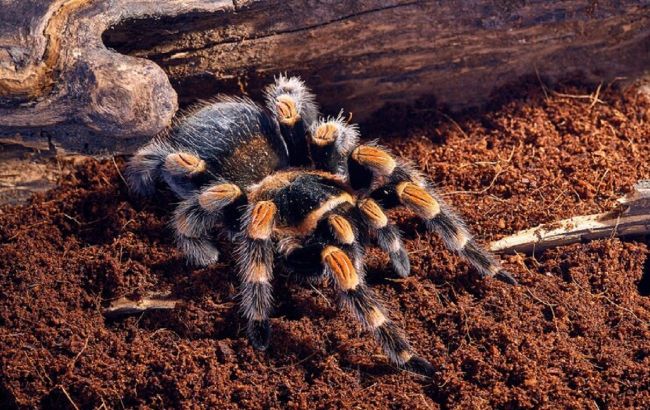Pros and cons of keeping spiders at home
 What you need to know about pet spiders (photo: freepik.com)
What you need to know about pet spiders (photo: freepik.com)
Spiders can be fascinating and unique pets. However, before getting one, it's important to understand their specific needs and requirements.
Advantages of keeping spiders
Spiders are becoming increasingly popular as pets, but like any other animal, they come with their own advantages and disadvantages.
Here’s why you should consider a spider as your pet:
- Low maintenance. Spiders don’t require daily care or walks. They can go weeks without food, making them convenient for busy people.
- Exotic appeal. These are unique and fascinating creatures that attract attention and can be a great conversation starter.
- Space efficiency. Spiders can be kept in small terrariums, which don’t take up much space.
- Allergy-free. Unlike cats or dogs, spiders don’t cause allergic reactions.
While spiders are generally easy to care for, it’s essential to know the specific needs of the species you’re keeping. For example, the spiders living in your home will have different requirements for heat and humidity compared to tropical tarantulas. Once you have identified the species and provided the best habitat for your pet, maintaining a sufficient supply of water and food will be your primary concern.
Depending on the species, you may observe your spider weaving webs, digging burrows, hunting, or engaging in other activities. For instance, orb-weaving spiders construct neat, symmetrical webs throughout the terrarium. Other species, such as the American house spider or cellar spiders, prefer to spin their webs in corners.
Be cautious about webs in corners, as black widows may also spin them there. Some spiders, like wolf spiders, hunt for prey on the ground, while jumping spiders may launch aerial attacks. Tarantulas often wait for their prey in burrows.
Disadvantages of keeping spiders
Spiders can easily escape through small gaps, so it’s crucial to ensure the enclosure is tightly secured. When feeding or watering them, be cautious, as some species move quickly and can either escape or hide.
Despite some tarantula owners and pet store employees handling spiders, experts advise against this. Spiders can be fragile and easily injured. Touching them often causes stress, which may provoke an aggressive reaction such as biting or attempting to escape. If you want a pet that you can carry in your pocket or on your shoulder, a spider is not the best choice.
Many domestic and garden spiders are not dangerous to humans, as their venom is weak or their fangs are too small to penetrate the skin. However, some species, including most tarantulas, can bite, causing pain and swelling similar to bee stings. In some people, serious allergic reactions to such venom may occur. To avoid the risk, it’s best to refrain from handling dangerous arachnids.
Considering these factors, it’s essential to carefully weigh the pros and cons before deciding to get a pet spider.
Sources: Pets on Mom, the Spruce Pets.


